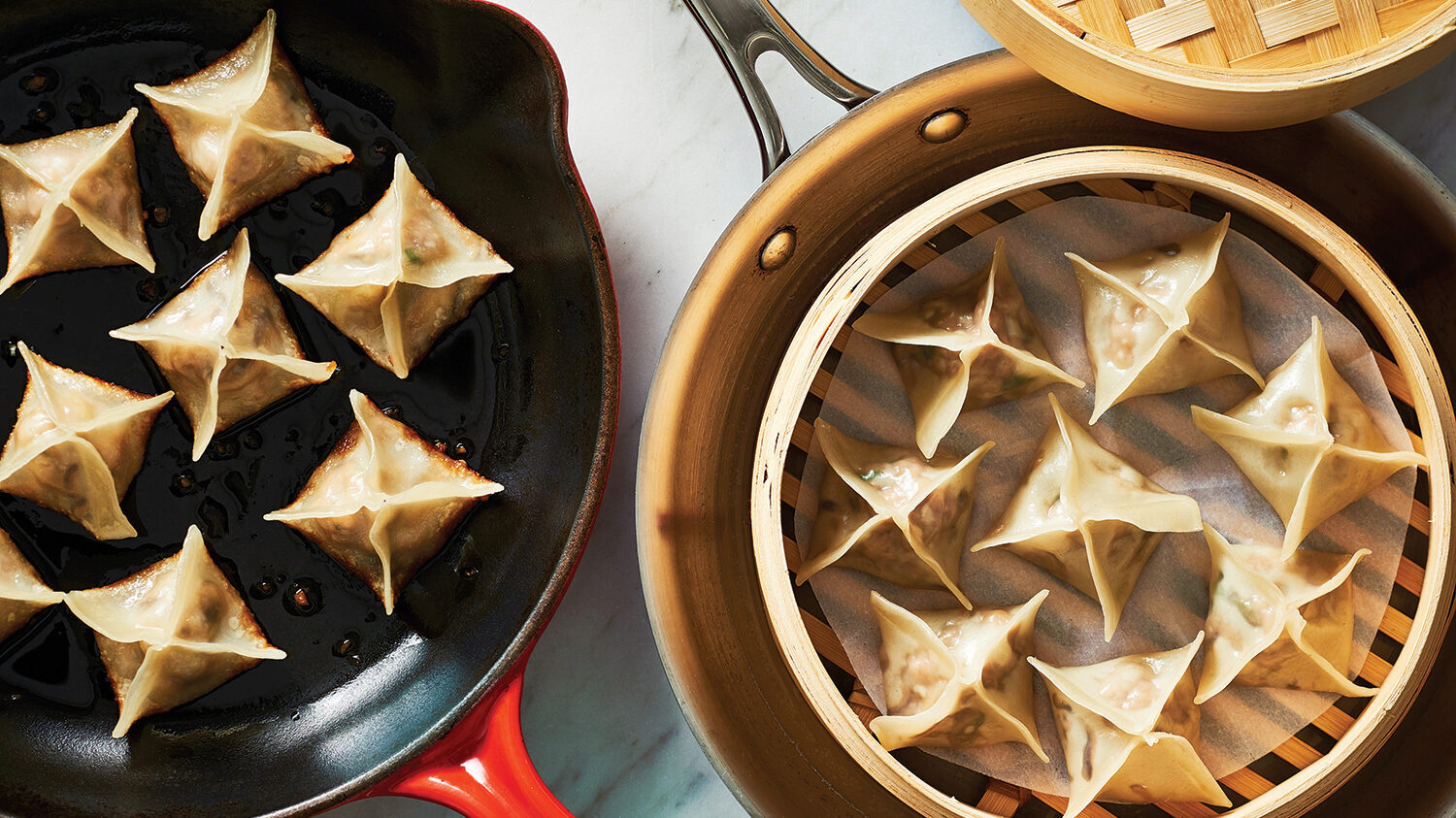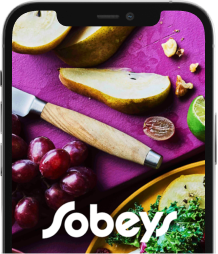The centuries-old cuisine of this peninsula nation is steeped in tradition and history. Korean menus are full of exciting flavours — bold sour notes, punchy heat, sweetness and saltiness — that are hard to resist. Keep the following pantry and fridge staples on hand and you’ll be able to enjoy this flavourful, filling and family-friendly style of cooking any time.
Fresh Ingredients
Whether raw, steamed, stir-fried, pickled or roasted, vegetables are central to the Korean table. Here are a few key staples.
- Cabbage: No meal is complete without a serving of kimchi — a garlicky, spicy fermented condiment most commonly made with leafy napa cabbage. Its brining and fermenting process is very similar to the one used to make sauerkraut, so our Quick Kimchi-Style Sauerkraut is a simple way to bring this Korean staple to your table.
- Cucumbers: An essential feature in Korean banchan — shared side dishes that accompany the main meal — cooling cucumbers help take the heat out of spicier Korean mains. Our Fresh Cucumber Kimchi is garlicky, salty and a little sweet to complement savoury dishes.
- Bean sprouts: Soybean and mung bean sprouts are another banchan favourite, softened slightly in boiling water before being tossed in nutty sesame oil or given a spicy kick with Korean hot pepper flakes, called gochugaru. Our Spicy Korean-Style Bean Sprouts can be made either mild or spicy, thanks to optional cayenne pepper, which takes the place of gochugaru.
- Potatoes: While Canadians tend to think of potatoes in savoury terms, Koreans take this versatile veg down a sweeter path, enjoying them in a variety of snacks, side dishes and desserts. Try our Korean-Style Potato Salad, a sweet-and-sour version made with rice vinegar, brown sugar and, of course, a dollop of mayo.
- Garlic: Most Korean pickles, sauces, soups and stews are made with plenty of garlic, but you can dial down any recipe to a single clove if you’re not a huge fan.
Basic Seasonings
These pantry must-haves and convenient supermarket ingredients are the ticket to making delicious Korean-inspired recipes.
- Korean chili pepper paste (gochujang): This signature sweet-hot condiment pops up in lots of Korean recipes. Our homemade Korean-Style Chili Paste, made with miso, cayenne and tomato-based chili sauce, is a pretty amazing taste-alike created with simple supermarket staples.
- Soy sauce: Korea’s version of this traditional flavour enhancer is stronger and saltier than Japanese- or Chinese-style soy sauce, but you can use the different varieties interchangeably.
- Fish sauce: This salty condiment made from fermented fish is found throughout Southeast Asian cuisines and has a unique, pungent taste. Many kimchis contain fish sauce, which adds an umami (savoury) note and ratchets up the flavour of the other ingredients.
- Soybean paste: Korea has its own version of this staple, known as duenjang, but miso paste is a close cousin and is more readily available in Canada.
- Vinegar: Unseasoned rice vinegar has a milder taste than white vinegar, so it’s is a good choice for making quick kimchi-style pickles or banchan.
- Sesame: Stock up on sesame oil and sesame seeds, both cornerstone ingredients for Korean starters, mains and desserts. Our Sesame-Ginger Ice Cream Sundaes feature a crunchy honey-sesame brittle inspired by traditional Korean sweets.
Beef
While pork, chicken and tofu are also used, beef — often served braised, barbecued or simply stir-fried — is one of the heroes of Korean cooking. Here are a few tasty ideas to get you started.
- Korean short ribs: These beef short ribs are sliced across the bones into long, meaty strips that are easily marinated and grilled or simmered and stewed. Give them a try in our Braised Korean-Style Beef Ribs recipe, simmered in a classic sweet-and-salty sauce.
- Beef strips: Enjoyed in soup, alongside a bowl of rice or wrapped in a lettuce leaf, beef strips are a mainstay in many Korean dishes. Try our Korean-Style Beef Skewers, made with slices of top sirloin.
- Ground beef: Once you’ve tried spicy-sweet Korean meatballs, you may never go back to your usual ones. Our Korean-Style Meatballs are made and seasoned in-store, taking the guesswork out of these tasty bites. Use them to whip up fast family dinners, such as our Korean-Style Meatball & Rice Bowl and Korean-Style Meatball Sub.
Rice
The backbone of Korean cuisine is rice, typically served steamed alongside soups and stews or as part of the main meal. One of Korea’s most famous dishes is bibimbap, a bowl of rice topped with neatly arranged meat or tofu, in-season vegetables, Korean chili pepper paste and a fried egg. Our Easy Beef Bibimbap is a great mid-week meal — watch our video to see how it’s done.
Cookware
No special equipment is required for making a great Korean meal, but these items are nice to have on hand.
- Dutch oven: This oven-safe pot with a tight-fitting lid is great for low-and-slow simmered short ribs.
- Deep skillet with lid: Some Korean-style stews are stir-fried and then simmered, and this pan will contain all the juices. A wok with a lid makes a good substitute.
- Rice cooker: This is a handy Korean appliance. Bonus: Since it’s electric, it frees up space on your stovetop!
At the heart of Korean cuisine is sharing with others, so whether you whip up a multi-course Korean barbecue or just add a kimchi side dish to your everyday dinner plate, be sure to enjoy the meal alongside family and friends.






